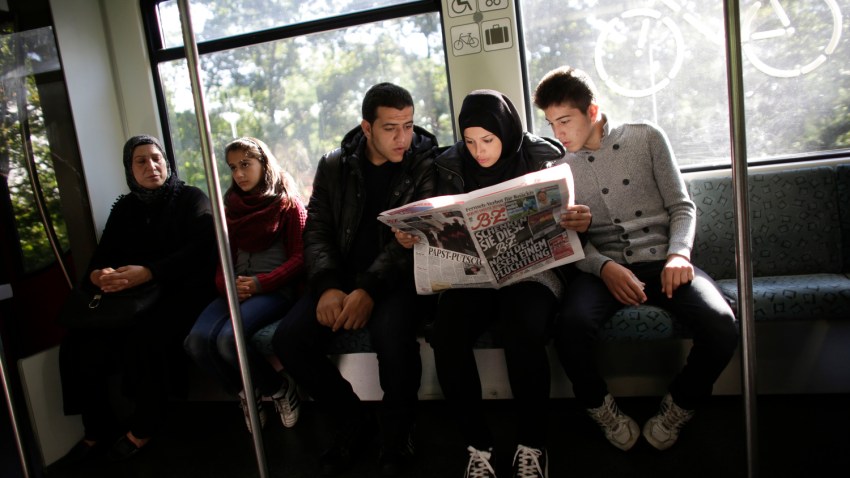They were noticeable for seeming slightly lost at the train stations where they arrived and were greeted by volunteers providing assistance. A call from friends trying to find a place to stay for a recently arrived family would lead to a collective scramble to contact local welfare agencies. In the months that followed, chance meetings at a bar, football match or the workplace would lead a circle of friends to extend invitations to some of the newcomers, who in time would become familiar faces.
Germany in the summer and autumn of 2015? Yes, but not only. And when traveling around the country at that time, it was jarring to see media coverage claim that what was taking place was unprecedented, when the same urban spaces had seen similar scenes play out repeatedly in the preceding 30 years. The mass influx of refugees that year from societies experiencing war and economic collapse caused a profound shock to German society and shook the political fortunes of then-Chancellor Angela Merkel. Yet this was not the first time Germany had experienced a sudden surge of migration in recent memory, nor would it be the last.
For anyone who, like me, was born in the late 1970s or early 1980s, the refugee surge of 2015 was only the latest of a succession of migration waves that reshaped the face of Germany reaching back to our childhood and teenage years. Whether ethnic German and Jewish migration from the Soviet Union and Romania; the massive influx of East Germans leaving a collapsing German Democratic Republic in the build-up and aftermath of the fall of the Berlin Wall; the thousands of economic migrants from across Eastern Europe; or refugees from the Yugoslav wars of secession or conflict in southeast Turkey—every German community in the late 1980s and 1990s was deeply marked by the mass movement of people. For kids from my generation, adjusting to the latest wave of new arrivals showing up as our neighbors, teammates in sports clubs or fellow school pupils became a matter of routine.

